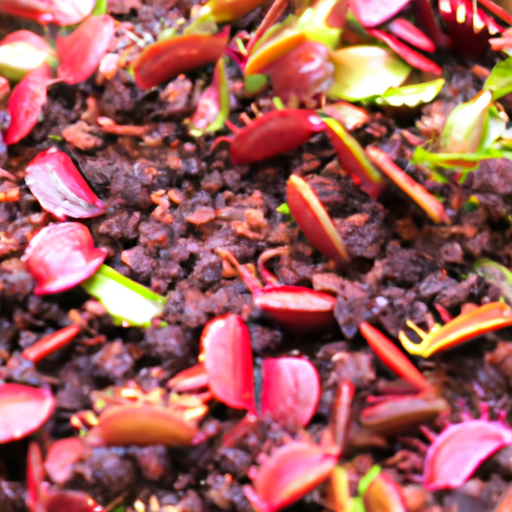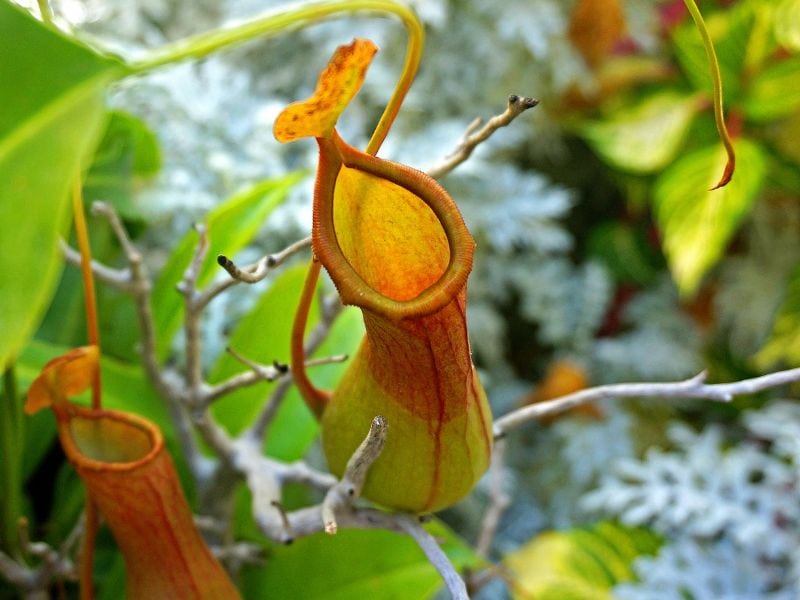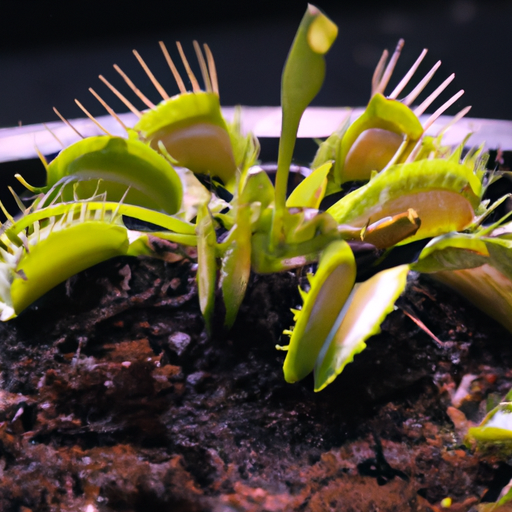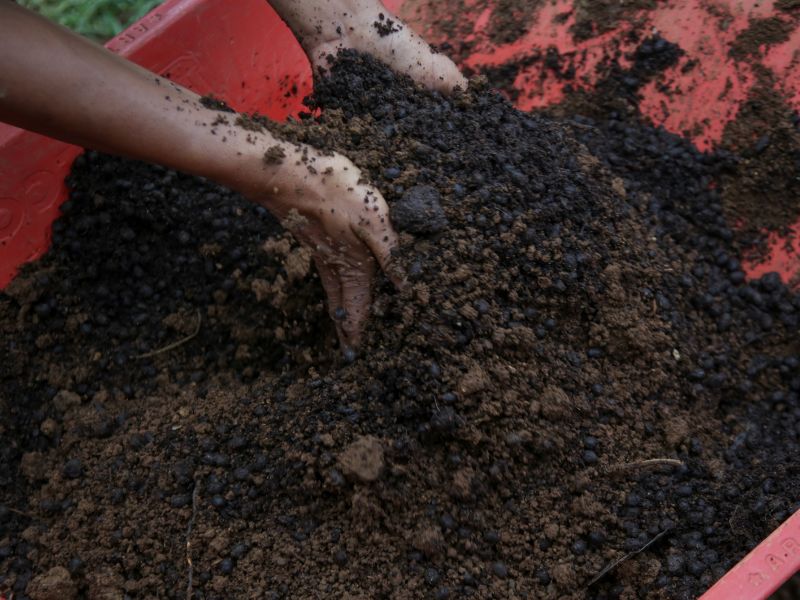Table of Contents
- How to Create the Perfect Carnivorous Soil Mix for Your Venus Fly Trap or Pitcher Plants
- The Benefits of Using a Carnivorous Soil Mix for Your Venus Fly Trap or Pitcher Plants
- What to Look for When Choosing the Best Carnivorous Soil Mix for Your Venus Fly Trap or Pitcher Plants
- Tips for Maintaining a Healthy Carnivorous Soil Mix for Your Venus Fly Trap or Pitcher Plants
How to Create the Perfect Carnivorous Soil Mix for Your Venus Fly Trap or Pitcher Plants

Creating the perfect soil mix for your carnivorous plants is essential for their health and growth. Whether you’re growing Venus fly traps or pitcher plants, the right soil mix will help them thrive. Here’s how to create the perfect soil mix for your carnivorous plants.
First, you’ll need to gather the right materials. You’ll need equal parts of sphagnum peat moss, perlite, and silica sand. You can find these materials at most garden centers or online.
Next, mix the materials together in a large container. Make sure to mix them thoroughly so that the soil is evenly distributed.
Once the soil is mixed, you’ll need to add some nutrients. You can use a fertilizer specifically designed for carnivorous plants, or you can use a slow-release fertilizer.
Finally, you’ll need to add some water to the soil mix. Make sure to add enough water so that the soil is moist but not soggy.
Now your soil mix is ready for your carnivorous plants. Make sure to use the soil mix immediately, as it won’t keep for very long.
Creating the perfect soil mix for your carnivorous plants is easy and will help them thrive. With the right materials and a little bit of effort, you can create the perfect soil mix for your Venus fly traps or pitcher plants.

The Benefits of Using a Carnivorous Soil Mix for Your Venus Fly Trap or Pitcher Plants
If you’re looking for the best soil mix for your Venus fly trap or pitcher plants, then you should consider using a carnivorous soil mix. Carnivorous soil mixes are specially formulated to provide the perfect environment for these unique plants. Here are some of the benefits of using a carnivorous soil mix for your Venus fly trap or pitcher plants.
First, carnivorous soil mixes are designed to provide the perfect balance of nutrients for these plants. Carnivorous plants need a soil mix that is low in nitrogen and high in phosphorus and potassium. This is because they get their nutrients from the insects they trap, rather than from the soil. A carnivorous soil mix will provide the right balance of nutrients for your plants to thrive.
Second, carnivorous soil mixes are designed to provide the perfect amount of drainage. These plants need soil that is moist but not soggy. A carnivorous soil mix will provide the perfect amount of drainage to keep your plants healthy.
Third, carnivorous soil mixes are designed to provide the perfect pH balance. Carnivorous plants need a soil pH between 4.5 and 6.5. A carnivorous soil mix will provide the perfect pH balance for your plants.
Finally, carnivorous soil mixes are designed to provide the perfect environment for your plants to trap insects. Carnivorous plants need a soil mix that is high in organic matter and low in nutrients. A carnivorous soil mix will provide the perfect environment for your plants to trap insects.
Using a carnivorous soil mix for your Venus fly trap or pitcher plants is a great way to ensure that your plants get the nutrients they need and the environment they need to thrive. With the right soil mix, you can be sure that your plants will be healthy and happy for years to come.

Venus Fly Trap Care and Growing Tips
What to Look for When Choosing the Best Carnivorous Soil Mix for Your Venus Fly Trap or Pitcher Plants
When it comes to choosing the best soil mix for your Venus fly trap or pitcher plants, there are a few things to consider. First, you want to make sure the soil mix is specifically designed for carnivorous plants. This means it should be low in nutrients and contain a high amount of organic matter. It should also be well-draining and acidic, with a pH of 4.5 to 5.5.
Next, you want to make sure the soil mix contains the right ingredients. Sphagnum peat moss is a great choice, as it helps to retain moisture and provides a good balance of air and water. You may also want to add perlite or vermiculite to the mix, as these help to improve drainage and aeration.
Finally, you want to make sure the soil mix is free of any contaminants. This means it should be free of fertilizers, pesticides, and other chemicals. It should also be free of any weed seeds or other unwanted materials.
By taking the time to find the right soil mix for your carnivorous plants, you can ensure they get the best possible growing conditions. With the right soil mix, your Venus fly trap or pitcher plants will be able to thrive and provide you with years of enjoyment.
Tips for Maintaining a Healthy Carnivorous Soil Mix for Your Venus Fly Trap or Pitcher Plants
1. Start with a good quality soil mix. Look for a soil mix specifically designed for carnivorous plants, as it will contain the right balance of nutrients and drainage.
2. Make sure the soil mix is moist but not soggy. Too much water can cause root rot and other problems.
3. Feed your plants with a balanced fertilizer. Carnivorous plants need a balanced fertilizer to stay healthy.
4. Avoid using tap water. Tap water contains chlorine and other chemicals that can be harmful to carnivorous plants. Use distilled or rainwater instead.
5. Repot your plants every few years. This will help keep the soil mix fresh and provide your plants with the nutrients they need.
6. Prune dead or dying leaves and stems. This will help keep your plants healthy and encourage new growth.
7. Monitor the pH level of the soil mix. Carnivorous plants prefer a slightly acidic soil, so make sure to check the pH level regularly.
8. Add a layer of mulch to the top of the soil mix. This will help keep the soil moist and provide additional nutrients.
9. Place your plants in a sunny spot. Carnivorous plants need plenty of sunlight to stay healthy.
10. Be patient. Carnivorous plants can take a while to adjust to their new environment, so give them time to settle in.
Related Post: Plants That Deter Flies


